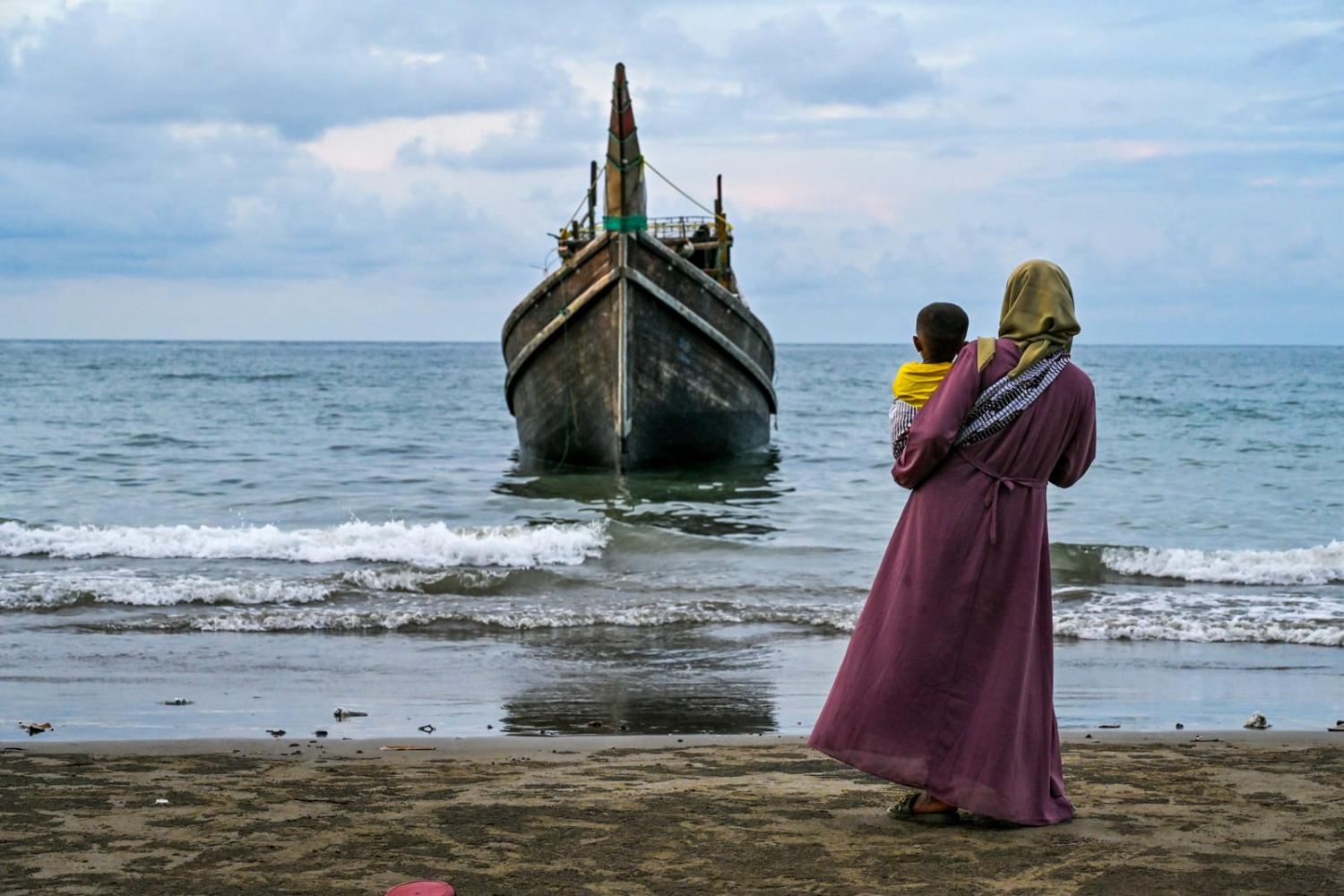Extra aid is welcome. The next task is to build Bangladesh’s capabilities.

Foreign Minister Penny Wong pledged additional assistance to Rohingya refugees this week, an important step in alleviating some push factors that are driving many people out of camps and onto boats. The next step is to work with Bangladesh authorities to stop the boats at source. This has the potential to save countless lives from dangerous voyages and prevent the development of a maritime migrant route to Australia via Indonesia’s Aceh province.
On 16 December, Wong announced $235 million in Australian assistance for Rohingya refugees in Bangladesh and Myanmar. This represents approximated 25 per cent extra in next year’s budget for total international assistance for Rohingyas in Bangladesh. This may enable additional food rations amid growing concern over food shortages.
But alleviating the dire security situation within the camps – where armed gangs run rampant – will be much more difficult, so there will still be significant push factors forcing refugees onto boats. The Australian government will therefore need to take more direct measures to prevent the establishment of a maritime route to Australia.
Since April 2023, about 20 boats are known to have embarked on journeys from Cox’s Bazar to Indonesia. According to UN officials in Cox’s Bazar, the “owners” of the boats in these ventures were mostly resident in Bangladesh, Indonesia and Malaysia, with one person apparently resident in Australia.
The smugglers gather groups of 25-50 refugees in the Teknaf hills near the Rohingya camps. They are then taken down the Naf River and out to sea on small inshore fishing boats to join larger vessels anchored between the Myanmar coast and Bangladesh’s St Martin’s Island. Only small numbers are intercepted by local police.
The larger boats, which can number 200-400 refugees on board, then head towards India’s Andaman Islands, which are used as a pit stop, and across the Andaman Sea to Indonesia. The cost of a journey to Indonesia is currently BDT 120,000 (AU$1600), with BDT 20,000 (AU$270) paid up front and the balance due once in the Andaman Sea. Even now, boats are known to be loitering and ready to take on passengers.
Arriving in Indonesia is by no means the end of their troubles. Those who want to go to Malaysia, where there is a large and longstanding Rohingya refugee population, are then put on boats again and approach the south of Malaysia, avoiding the patrols in the northern part of the country. Although Acehnese people once treated Rohingyas with considerable sympathy, that is much less the case now, with reports of Acehnese locals pushing boats back out to sea.
Australia appears the next logical step. The cost of buying boats is estimated between BDT700,000-1,000,000 (AU$9,500-13,500), so they can be used for a single journey and still make money.
Although Australia’s offshore detention policy has previously been seen as an important element in deterring maritime arrivals, it is not clear how effective this will continue to be. According to a UN official in Bangladesh, Rohingyas see Australian detention centres in the Pacific as infinitely better than the camps in Cox’s Bazar and Myanmar, so the journey would still be worth it.
If the prospect of being locked up indefinitely on Nauru doesn’t provide sufficient deterrence, then there will be a need to focus on other measures.
The principal agencies with authority for law enforcement in Bangladesh waters are the Bangladesh River Police and Bangladesh Coast Guard. But they have limited capabilities in southern Bangladesh. Authorities also have little incentive to prevent departures. Indeed, with soaring birthrates inside the camps, each Rohingya that leaves Bangladesh is one less mouth to feed.
There are also legal constraints on the ability of Bangladesh authorities to prevent departures. Under Bangladesh law, people smuggling (involving the transport of willing participants) is not a crime, although human trafficking (the forced transport of people) is. But maritime agencies can, for example, turn boats around on safety grounds.
Australia will need to work with the Bangladesh Coast Guard, River Police and other agencies to improve their capabilities and incentives to stop movements as close as possible to source. This should involve a multi-layered approach.
As elsewhere, an education campaign needs to make clear that there is no prospect of getting to Australia – although admittedly the level of desperation inside the camps may limit the effectiveness of this message.
The next layer would involve equipping the Coast Guard and River Police with sufficient fast river craft to enable them to intercept vessels on the Naf River, before they reach the sea. Small, inexpensive, commercial drones would also substantially increase their effectiveness.
Finally, the Bangladesh Coast Guard needs to be given the incentive to use existing assets to monitor and disrupt the larger boats loitering offshore. This may require making longer-term (and conditional) commitments to build Bangladesh Coast Guard capabilities.
A multi-agency Australian effort involving the Australian Border Force and Australian Federal Police will be an essential element in preventing the establishment of a maritime route to Australia. The use of the expertise and personnel of state water police may be an appropriate and cost-effective way of approaching the problem.
Although additional Australian humanitarian aid is welcome, it will not in itself prevent the Rohingyas leaving the camps. Working with Indonesian authorities will also be important. But Australian assistance to Bangladesh in preventing departures at or near the source is likely to be the most effective way of stopping the establishment of a maritime route to Australia.
